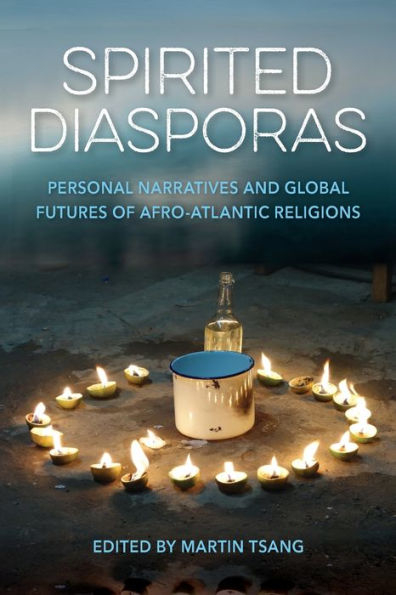This is a fascinating collection of first-hand accounts of various converts to Lucumi / Vodou / Santeria from a wide range of backgrounds. The contributors come from the United States, the United Kingdom, France, Japan, Canada, and a variety of ethnicities and gender identities. Chinese, Jewish, Japanese, all embraced by the orishas, trained and initiated into these traditions, mainly in Cuba.
There is a continuing concern about cultural appropriation that is raised whenever a person not born into a religious tradition that is associated with a racial or ethnic minority speaks about it. This concern is legitimate when we see the New Age charlatans parlaying their reading of a couple of books, experience at a weekend spiritual retreat and some vague Perennial Tradition notions into a grand title as spiritual ‘teacher’ and religious entrepreneur. However, it is sometimes simply virtue signaling.
Lucumi / Vodou it isn’t an ethnically or racially bounded practice and has always included some practitioners of a range of ethnic and racial designations. If someone has undergone the training and is accepted as an Initiate into a tradition by the people of that tradition, I think that should settle the question of their legitimacy.
Spirited Diasporas is a collection of the personal stories of the contributors’ coming to be called by the orishas, including personalities, people they met, conflicts and difficulties, and some details of ceremonies. It is not only scholarly, but principally personal, centered on the experience of becoming interested, getting chosen by an orisha, how their lives were changed. It could be read as a companion book to C. Lynn Carr’s excellent ethnography A Year in White (Rutgers U. Press, 2015) which particularly deals with converts to Lukumi and Santeria in the United States and the titular year of wearing only white clothing (as well as other restrictions in diet and behavior) while training to Initiate.
The key insight of this volume is the transnational reality of the Afro-Atlantic religions, whose influence and teachings now are sought out far from their historical geographic roots, and the inherent dynamic change and growth within the traditions. Pluralism, movement, hybridity and connection are, have always been, key to these traditions but increasingly so at present. Rather than being preserved since time immemorial, they, like all religions, are adapted by practitioners to serve their needs and as prompted by the gods.
The introduction gives a summary of the scholarship as well as the debates within the academy about these religions, and an outline of common features of their theologies – a focus on a healthy life rather than an afterlife, on divination and personal relationships with deities. Then a brief discussion of history and differences between the various streams of Afro-Atlantic religions: Candomblé, Lukumi / Santeria, Vodou, Palo, as well as the various streams of African and European religious and occult practices that came together in them, and the bare outline of initiation ritual and requirements (which Carr goes into in more detail).
Then follow twelve chapters of personal stories and insights, which I will not try to summarize, containing details of the ceremonies, experiences, and feelings of a wide range of practitioners. I found a couple of them to be particularly interesting – Yoshiaki Koshikawa on “Practicing Ifa in Tokyo” with his reflections on the lwa as similar to the kami of Japan, Eugenia Rainey’s discussion of differences in Lucumi around Catholicism, Belia Mayeno Saavendra’s beadwork analogy in her discussion off healing in the religion and the tedious work of preparing for ceremony.
If you’re looking for a grimoire, this is not it. But if you want to understand on a personal level what has drawn people to the orishas and to the Afro-Atlantic religions, how then nourish their souls, this is a lovely book.
~review by Samuel Wagar
Editor: Martin Tsang
University of Florida Press, 2023
227 pg. Paperback £21 / $38 Can / $ 27 US

